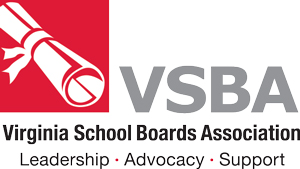Virginia General Assembly Adopts 2022-2024 Biennial Budget

The 2022-2024 Biennial Budget was adopted by the Virginia General Assembly on June 1, 2022, following a lengthy period of negotiations between Senate and House budget writers. Lawmakers returned to Richmond on June 17, 2022, to consider over 30 recommendations to the budget made by Governor Youngkin. Recommendations by the Governor require a simple majority vote of each chamber to remain in the budget.
The 2022-2024 biennial budget contains 19.2 billion dollars over the biennium directed towards K-12 Public Education, which is a 20% increase over the appropriated dollars for K-12 during the 2020-2022 biennium. The spending provisions and legislative language found in the budget will take effect July 1, 2022.
If you have any questions about the 2022-2024 biennial budget, or if you have questions regarding any legislation that was addressed during the 2022 session of the Virginia General Assembly, please contact me at 434-295-8722 ext. 116 or jason@vsba.org.
The following list of budget amendments is a selection of amendments and does not contain each amendment impacting K-12 public education. If you would like to review the entire 2022-2024 biennial budget, you can find it by clicking here.
Item 129 #6c– This amendment provides $4.8 million the first year and $4.6 million the second year from the general fund to support implementation of the Virginia Literacy Act, and to prepare for the implementation of science-based literacy instruction beginning in fiscal year 2025. In addition, this amendment directs the University of Virginia’s Center for Advanced Study of Teaching and Learning to create a technical support center to support implementation of the bill and directs the Board of Education to initiate its textbook review process to assist school divisions to obtain materials required by the act.
Item 130 #2c– This amendment provides $100,000 each year from the general fund to increase support for statewide training programs for school division staff to implement regulations related to the use of restraint and seclusion of students in public schools. This would increase total support for such training to $592,755 annually.
Item 135 #2c– This amendment clarifies that the “Accreditation Waived” status provided to schools in the 2019-20 and 2020-21 school years do not apply toward the three years of “Accredited” status required for a school to become eligible for triennial accreditation.
Item 137 #2c– This amendment provides $400.0 million from the general fund for the School Construction Grant Program. Language allows local school divisions to use the School Construction Grants Program funds, as introduced, for debt service payments on school projects that have been completed or initiated during the last ten years and clarifies that funds shall not be used for repair or replacement of parking lot or for facilities that are predominantly used for extracurricular athletic activities. Additionally, language clarifies that any unexpended funds shall be carried on the books of the locality in local escrow accounts pursuant to § 22.1-175.5.
Item 137 #5c– This amendment provides $10.0 million the first year from the general fund and $10.2 million the second year from the general fund for the state share of one full-time school principal position for each elementary school. Current law provides that elementary schools with fewer than 300 students are provided a half-time principal position.
Item 137 #6c– This amendment eliminates the Reading Recovery intervention program as a permissible use of At-Risk Add-On Funds to align with Chapter 61, 2022 Acts of Assembly.
Item 137 #9c– This amendment captures $123.2 million in general fund savings the first year by increasing the At-Risk Add-On maximum add-on percentages from 26.0% to 36.0% beginning in fiscal year 2023. The introduced budget proposed establishing the maximum add-on at 49.5% in fiscal year 2023 and 36.0% in fiscal year 2024.
Item 137 #10c– This amendment provides $109.4 million from the general fund the first year and $162.3 million from the general fund the second year to increase the number of funded support positions. Since fiscal year 2010, funded support positions have been calculated as a linear weighted average of support positions to funded SOQ instructional positions as reported by divisions. This would increase the funded ratio from 17.75 support positions per 1,000 students to funded SOQ instructional positions to 20 support positions per 1,000 ADM to funded SOQ instructional positions in the first year, and 21 support positions per 1,000 ADM to funded SOQ instructional positions in the second year. This increases state support for support positions and partially removes the funding cap placed on support positions beginning in fiscal year 2010.
Item 137 #12c– This amendment provides $104.1 million from the general fund the first year and $257.2 million from the general fund the second for the equivalent distribution of the 1% sales tax revenue from food and essential personal hygiene products. The funding for this amendment is fully contained within the introduced budget since the introduced budget contained a hold harmless payment for the loss in dedicated K-12 sales tax from exempting food after the Basic Aid offset and contained the entire distribution of sales tax from essential personal hygiene products. The reductions reflected in this amendment are related to rounding variances when distributing these payments based on school age population and then calculating the Basic Aid state and local shares of cost based on the local composite index.
Item 137 #13c– This amendment provides that the 5% salary increase in the first year is effective on August 1, 2022 and reduces the compensation supplement funding to reflect this action. It additionally clarifies that local school divisions must use revenues derived from local sources to match the state share of funding for the compensation supplement.
Item 137 #15c– This amendment provides $400.0 million the first year from the general fund and $50.0 million the first year from the Literary Fund to establish the School Construction Assistance Program, to provide competitive grants for school construction and modernization, based on demonstrated poor building conditions, commitment, and need. Grants would cover 10% to 30% of reasonable project costs, depending on a locality’s local composite index and fiscal stress score.
Item 137 #20c– This amendment deposits $100.0 million the first year into the College Partnership Laboratory Schools (CPLS) Fund and authorizes the Board of Education to award $5.0 million for planning grants to CPLS applicants, $20.0 million for startup grants to approved CPLS, and to distribute per pupil funds to approved CPLS. This amendment further requires the Board of Education to establish CPLS Fund guidelines before the release of funds and reverts any unobligated funds at the end of the 2022-24 biennium to the general fund.
Governor Yougkin made two recommendations to the budget regarding CPLS. The first recommendation (Amendment #33) expanded CPLS eligibility to public community colleges; public higher education centers, institutes, and authorities; and institutions of higher education eligible for the Tuition Assistance Grant Program.
This recommendation was approved by each chamber.
The second recommendation, Amendment #34, added an enactment clause to the budget to amend and reenact § 22.1-349.10 of the Code of Virginia adding language directing students of college partnership laboratory schools to be counted in average daily membership and for state funding for Standards of Quality (SOQ), Categorical, Incentive, and Lottery programs that are calculated membership, to be distributed accordingly as well as the proportionate state share of all applicable Categorical, Incentive, and Lottery program funds, as eligible. The recommendation also added language to allow local schools divisions and laboratory schools to enter into a memorandum of understanding to determine the formula by which funding is distributed.
This recommendation was approved by the House by a vote of 50-44 but was Passed by for the Day in the Senate by a 20-19 vote.
Item 137 #25c– This amendment provides $30.8 million the first year and $31.6 million the second year from the general fund to provide one reading specialist for every 550 students in kindergarten through third grade and provides flexibility for school divisions to employ other instructional staff working toward obtaining the training and licensure requirements prescribed in House Bill 319 that will become effective in the 2024-2025 school year. This amendment also eliminates $31.5 million the first year and $31.6 million the second year that was included in the introduced budget to expand Early Reading Intervention from kindergarten through third grade to kindergarten through fifth grade. This amendment is net of both actions.
Item 4-14 #7c– This amendment provides an exemption on the 1.5% state sales tax imposed on food purchased for human consumption or essential personal hygiene products effective January 1, 2023. Additionally, it provides that the amount of the 1% dedicated to public education be replaced with a like amount of general fund distributed based on school-age population, consistent with the distribution of sales tax.
